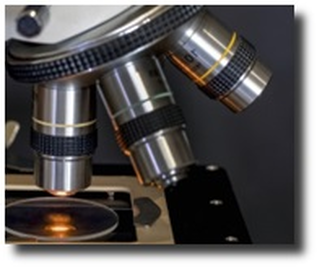We’re living in interesting times. Yes, you could say that at any point in history, but this is the point I’m living in, and I think it’s interesting!
Each new technological advance brings a certain level of excitement and a whole new world of possibilities. The problem is that some of these possibilities are not so good, at least not to those with a strong moral compass. More specifically, a strong moral compass based on God’s Word.
Ever since the discovery of the structure of DNA, scientists have been eager to better understand its amazing complexity. Now that we are at the point of having a much better understanding of what much of DNA does, many scientists can’t help but wonder if they can improve on it or use it to accomplish a particular outcome they believe is important.
Some scientists are working very hard at melding our natural biology with advanced human technology in what they have termed “transhumanism.” In an attempt to speed up evolution, some even aim to create a Human 2.0, which would be less subject to disease and possibly even avoid death! “We will be gods,” the statement has been made! Where have I heard that before?
I don’t want to get off-track here regarding transhumanism. I simply brought it up as an example of what happens as we make significant advances in technology.
We’ve been using our knowledge of DNA to make enhancements in various areas. One example might be genetically modifying crops to be more resistant to predatory bugs and insects. That’s a good thing, right?
Maybe. The problem is that while it might resolve one known problem (the insects eating the crops), it may cause multiple unknown problems in the people who eat the now genetically modified crops. We may not know for years what all these problems are. Numerous examples could be cited. Genetic engineering, like many other technological advances, is not in and of itself a bad or evil concept. It can go both ways. The question is always, “Which way is it going and who gets to decide if it’s good or bad?”
A recent National Geographic article I read was entitled, “Can we hack DNA in plants to help fight climate change?” When I see an article like this, my question isn’t so much, “Can we?” as it is, “Should we?” The assumption here is that climate change needs to be fought. We are to accept that as “settled science.” If you disagree or even dare to question this, you are not only a “science-denier,” you are incredibly naïve and exceptionally insensitive regarding the lives of people all over the planet. You apparently don’t care if millions of people die because of your completely selfish actions. It’s the “shaming” technique.
The main idea in the article is that plants naturally absorb carbon dioxide (the “greenhouse gas” many activists virtually want you to sacrifice your life to reduce). What if we can genetically modify plants to absorb more carbon dioxide to keep it out of the environment? Can scientists achieve this? I don’t doubt it. However, I don’t believe the doomsday alarmists are correct about their climate change views, but that doesn’t matter. What matters is what the majority of the population thinks, because they are generally willing to give up whatever freedoms are needed in order for “the experts” to solve whatever the “end-of-the-world, problem of the day” is.
But it’s just modifying some plants, so how could that hurt? We don’t eat most of the plants anyway, right? The more important question is, “What’s next?” What if they believe they can genetically modify people to fight climate change? “Now you’re going too far. That’s crazy!” Really? Years ago, I read an article discussing genetically modifying humans so our eyes work more like the eyes of cats. They can see better in the dark. If we could do the same, we could use less light, thus using less energy, thus fighting climate change! Where will it end? In reality, there is no end. Judges 21:25 states, “In those days there was no king in Israel. Everyone did what was right in his own eyes.” Another way of saying this is there was no ultimate authority, so everyone did whatever he or she thought was best or whatever they wanted to do!
With no real moral compass, there are no “checks and balances.” Sadly, in our country in particular, the church is rapidly losing its influence. More and more Christians (including too many Christian pastors) are going along with whatever secular narrative comes their way, or just kind of checking-out altogether. Thankfully, we still have many great pastors, but their numbers are dwindling.
Jesus said, “Just as it was in the days of Noah, so will it be in the days of the Son of Man” (Luke 17:26). What was it like in Noah’s day?
The Lord saw that the wickedness of man was great in the earth, and that every intention of the thoughts of his heart was only evil continually. And the Lord regretted that he had made man on the earth, and it grieved him to his heart. So the Lord said, “I will blot out man whom I have created from the face of the land, man and animals and creeping things and birds of the heavens, for I am sorry that I have made them.” (Genesis 6:5-7).
This seems to be where we are today. Is it a sign that Christ’s return is close? I certainly think it could be. We need to focus our efforts, not on fixing a broken world, but on sharing the Gospel message, so as many as possible can find forgiveness, fix their relationship with their Creator, and spend eternity in perfect fellowship with Him!
We need to be people who “understand the times” (1 Chronicles 12:32) and look for every opportunity to be “salt and light” (Matthew 5:13-16).









